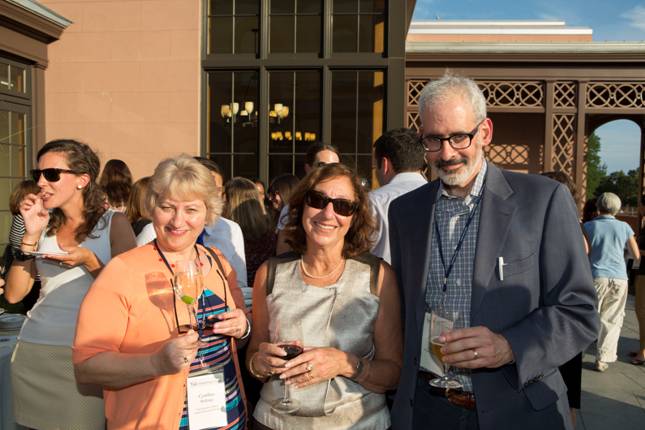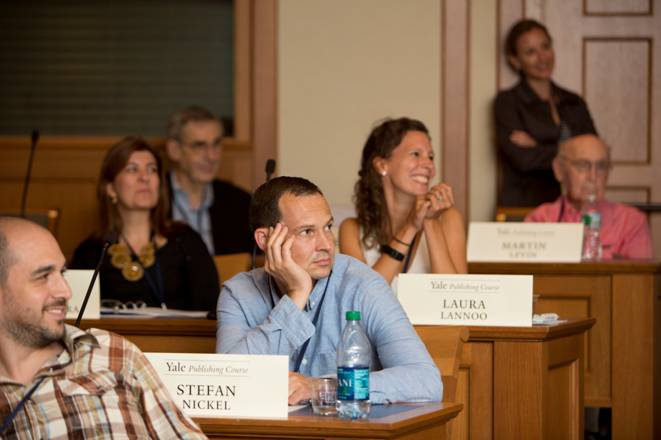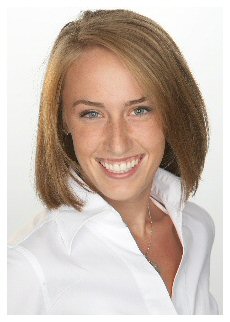The Future of the Yale Publishing Course: Fresh Content and Staying Ahead of the Curve
When asked where she saw the Yale Publishing Course in five years, Director Tina C. Weiner responded, “YPC will continue to provide a venue where mid to senior-level publishing professionals can go to obtain an educational experience that they cannot find elsewhere—meaning spending a week away from their daily routines where they can meet with their peers from all over the world to consider the industry in a broader perspective.”

“The Course’s advisors and I will continue to rethink the program every year and make sure we are tackling the issues and trends that are most on publishers’ minds,” she continued. “I am heavily influenced by the comments and suggestions made by the participants during and after their time at Yale and adapt the format and curriculum accordingly. Keeping up with technology, investigating new business models, presenting innovative strategic planning and case studies, preparing for the future, and developing leadership skills will continue to be the core of the program, but I can promise you that the content will be updated every year. Participants who have attended more than once have found that each year is different, and I have discovered that each class takes on a life of its own. That inspires me and makes the whole experience interesting and fun.”
Feature
The Yale Publishing Course: Celebrating Five Years
YPC Director’s Take on the Past, Present, and Future of the YPC
Three years ago I had the honor of attending the Yale Publishing Course, the weeklong educational and networking event that brings together scores of mid- to senior-level publishing professionals each July. Truly the most innovative and valuable program around, the course celebrates its fifth anniversary this summer. I caught up with program director Tina C. Weiner to see what’s new this year and what attendees can look forward to (think: leadership development, digital strategies, and more).
Read on for our Q&A, and be sure to check out the Yale Publishing Course website at publishing-course.yale.edu. The magazine program runs July 13–18 and the book program is slated for July 20–25. Apply soon as spots are limited! You don’t want to miss this amazing opportunity, featuring speakers from the top publishing houses and participants from around the world.
IP: How has the Yale Publishing Course changed over the past five years?
TW: The most significant change in my mind is that the Course has become more interactive and informal, and the speakers are more responsive to the issues the participants want to discuss in greater depth. They not only answer the participants’ questions, but solicit their comments to draw them into the conversation. The result is a lively dialogue that isn’t possible at conferences and webinars. In addition, the conversation and networking continue outside the classroom throughout the week at breaks, receptions, and meals. The curriculum itself is increasingly focused on leadership training and emphasizes not only what to DO now to keep up with the latest advances in technology and emerging new sources of revenue, but how to THINK about what lies ahead and how best to be prepared for the changes that are looming. The curriculum is refreshed each year to keep up with the latest developments and most crucial issues facing the industry.
Whereas in its first years the speakers concentrated on explaining what the digital revolution was and how publishers needed to adapt to it, we now concentrate more on best business practices now that e-books are fully integrated into the publishing process and e-commerce and e-marketing offer new opportunities. I ask speakers to discuss what strategies have worked for them as well as what hasn’t and why. Since this is a course with limited and carefully selected enrollment, the speakers are more candid than they might be in a more public setting.
IP: What were some of the challenges you’ve seen in the past five years as a result of an ever-changing publishing landscape? How did the YPC address these challenges for participants?
TW: The biggest challenges for publishers seems to me to be finding new sources of revenues and news ways to reach readers in light of recent major disruptions: the competition for readers whose attention is distracted by other options for information and entertainment available on the Internet; a market flooded with self-published books which makes discoverability more difficult; the closing of brick and mortar stores; Amazon’s growing market share; revenues challenged by the availability of e-books at lower prices; and, perhaps most importantly, trying to keep up with the ever-increasing advances in technology and a myriad of start-ups competing for the reader’s attention.
YPC addresses these issues by finding leading thought leaders and asking them to delve deeply into the issues and how they are addressing them within their own companies. Members of the faculty of the Yale School of Management place the concept of disruption into context and demonstrate how to manage your staff during times of transition. This year we’ve added sessions on how to use data that is now more readily available to give the consumer what they want, in the format they want, and how to market to them most effectively. We’ll spend more time discussing social media, branding, and non-traditional ways to reach readers both domestically and throughout the world.

IP: What presentations have been the most innovative or inspiring, especially for those who come from indie and small presses?
TW: This is harder to answer than you might think. One thing that is very cool about YPC is that different sessions appeal to different attendees depending on where they are from and what their responsibilities are. Often a participant is most excited and inspired by topic focused on an area in which they may not be directly involved. The point of the Course is to spend time away from your daily routine and specific silo and be exposed to the industry in a broader context. Learning more about marketing and finance is enlightening for those with an editorial background, being exposed to what marketing is doing is essential for people in business development, and everyone is enriched by understanding what editors are doing to develop content. Becoming better informed about the challenges your colleagues in other departments are facing makes you more effective in your own position and prepares you to move forward in your career.
The sessions by the School of Management faculty are perennial favorites since they are specifically geared to teaching better leadership skills and strategies to help both managers and staff deal with change. Speakers are asked to share their most recent innovative practices and their candid thoughts on where they think the industry is heading. Since the speakers come from publishing houses of all sizes, they afford the attendees are variety of perspectives and very different leadership strategies. I think the participants from small and independent companies are inspired and energized by this diversity. The participants seem to especially value meeting peers from all over the world and, given the length of the Course, the relatively small size of the class, and the ample opportunities to mingle, they are able to form friendships that last long after they have left New Haven. I’ve been told that after they leave Yale they often seek each other’s advice as well as that of the speakers whom they found most inspiring.
In a Nutshell…
The Yale Publishing Course is a gathering of publishing professionals like you’ve never seen. Whether you’re from a giant New York house or a teeny-tiny press that publishes just one book each year, you can learn from the industry’s best publishers, booksellers, marketing professionals, and leaders. And this year’s curriculum will focus on the biggest questions and challenges we all face:
• the financial realities of publishing today
• understanding recent disruptions in the industry
• new ways to increase revenue
• strategic planning for integrating print and digital
• evolving relationships with libraries, authors, and bookstores
• legal and ethical dilemmas facing publishers today
• using social media effectively
• expanding into international markets
• and much more…
The YPC global alumni network consists of more than 400 people from over 40 countries worldwide. Want to know more about a day in the life at YPC? Read more in “The Insider’s Guide to the Yale Publishing Course” and visit the YPC website at publishing-course.yale.edu. You can also check out this recent article for more information, and be sure to browse the stories on Independent Publisher for previous articles on the YPC and stay tuned for more news!
What People Are Saying About YPC
“The Yale Publishing Course provided an invaluable window onto the latest trends in the broader world of book publishing. It was so enriching professionally to listen to some of the most innovative people in the industry discuss topics ranging from trends in the reading habits of young people, to the latest in enhanced e-book technology, to management strategies. And it was a great privilege being in the company of such a smart, eclectic, and interesting group of publishers, with whom I was able to compare notes and develop what I hope will be long-lasting professional ties. A truly inspiring experience.”
Fred Appel, Executive Editor, Princeton University Press
"I got so much out of YPC that it's hard to pick any one most valuable experience. Several were particularly valuable, starting with my one-on-one sessions with Bruce Harris and Robert Baensch. They were both tremendously helpful. After that, I'd say I learned a huge amount from the informal conversations with fellow classmates and presenters at meals, over drinks, and while walking to and from the campus (walk, don't take the bus!). And finally, a few of the sessions particularly spoke to my thirst for knowledge as the publisher at a small press: Roxanna Cody's, Nigel Holmes's, Bruce Harris's, Lisa McCloy-Kelley's, and Richard Foster's. And David Godine was inspirational."
Colleen Dunn Bates, Publisher, PROSPECT PARK BOOKS

Jillian Bergsma Manning is a contributing editor for Independent Publisher. She graduated from the University of Michigan with a degree in English. She welcomes any questions or comments on her articles at jbergsma (at) bookpublishing.com. Follow her at @LillianJaine.

